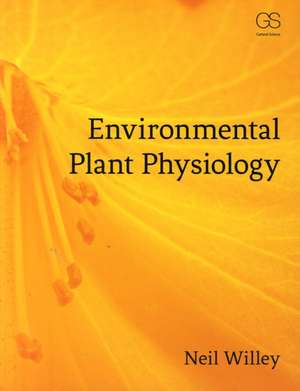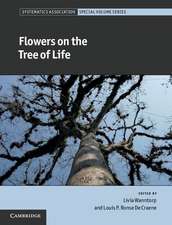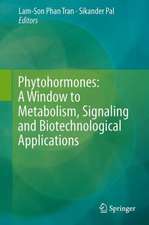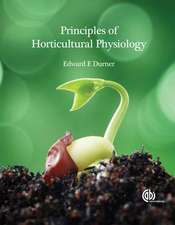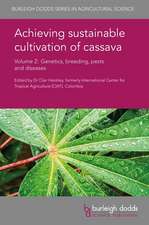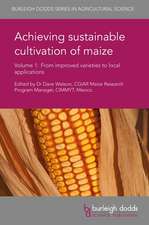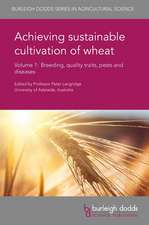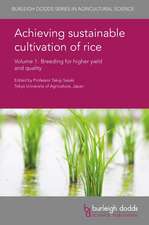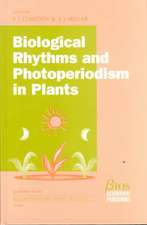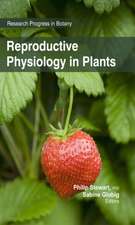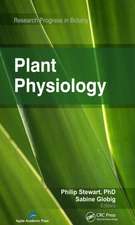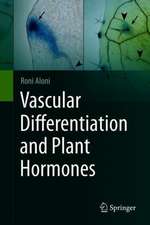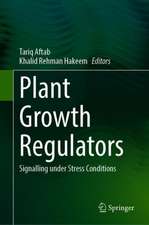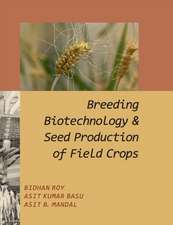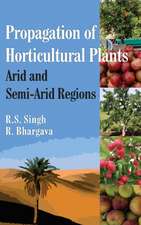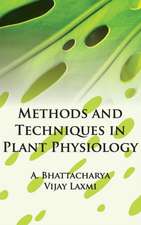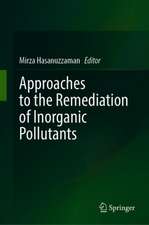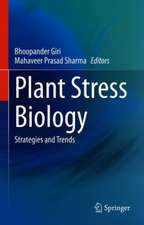Environmental Plant Physiology
Autor Neil Willeyen Limba Engleză Paperback – 22 ian 2016
Preț: 665.47 lei
Preț vechi: 782.90 lei
-15% Nou
Puncte Express: 998
Preț estimativ în valută:
127.33€ • 133.66$ • 105.69£
127.33€ • 133.66$ • 105.69£
Carte tipărită la comandă
Livrare economică 10-24 aprilie
Preluare comenzi: 021 569.72.76
Specificații
ISBN-13: 9780815344698
ISBN-10: 0815344694
Pagini: 400
Ilustrații: 100 colour illustrations, 116 colour illustrations
Dimensiuni: 219 x 276 x 20 mm
Greutate: 1.11 kg
Ediția:1
Editura: CRC Press
Colecția Garland Science
ISBN-10: 0815344694
Pagini: 400
Ilustrații: 100 colour illustrations, 116 colour illustrations
Dimensiuni: 219 x 276 x 20 mm
Greutate: 1.11 kg
Ediția:1
Editura: CRC Press
Colecția Garland Science
Public țintă
Postgraduate and UndergraduateCuprins
1. Contexts, Perspectives, and Principles
2. Light
3. Carbon Dioxide
4. Water
5. Nitrogen
6. Phosphorus
7. Essential and Beneficial Elements
8. Temperature
9. Salinity
10. Soil pH
11. Flooding
12. Inorganic Toxins
13. Organic Toxins
14. Air Pollutants
15. Synopsis and Outlook
2. Light
3. Carbon Dioxide
4. Water
5. Nitrogen
6. Phosphorus
7. Essential and Beneficial Elements
8. Temperature
9. Salinity
10. Soil pH
11. Flooding
12. Inorganic Toxins
13. Organic Toxins
14. Air Pollutants
15. Synopsis and Outlook
Notă biografică
Dr Neil James Willey PhDDirector of the Centre for Research in Plant ScienceLecturer at the University of the West of EnglandUndergraduate Teaching: For almost two decades the Author has taught plant biology and plant-environment interactions to undergraduates and postgraduates studying biological and environmental degrees. He teaches botanical aspects of ‘The Living World’ (Yr1) to Biology, Biosciences, Conservation Biology and Environmental Science students, and for many years have run modules in ‘Plant Growth & Survival’ (Yr2) and ‘Environmental Plant Physiology’ (Yr3) to Biology and Environmental Science students. He also teaches on modules in ‘Climate Change’, ‘Molecular Biotechnology’, ‘Environmental Toxicology’ and ‘Genome Analysis’ to students from Biology and Environmental Science degrees. Postgraduate Teaching: The Author teaches MSc students on Biosciences and Environmental Consultancy. He leads the Masters dissertations in environmental topics which 200+ students have now completed. He has supervised 20+ Masters dissertations in plant-environment topics. He’s supervised 7 PhD students to completion. He has been external examiner for PhDs at Bristol, Imperial, Nottingham, Portsmouth and Hasselt (Belgium) and has been an internal PhD examiner 12 times. He was also Chair of the Faculty Research Degrees Committee and Director of the Faculty Graduate School with responsibility for 70+ PhD students at any one time. The Author has been a tutor on numerous GradSchools organised for the Research Councils through UKGrad and Vitae, and is a tutor on the SouthWest GradSchool for PhD students from all universities in the South West of England. Research Interests. The Author is interested in stressors and xenobiotics in the soil-plant system, in particular radionuclides and toxic metals but also organics. He has researched radionuclides in the soil-plant system and his current interests include the effects of phylogeny on soil-plant transfer, the phytoremediation of soils contaminated with radionuclides and the effects of radiation on plants. He is just completing projects that have used genomic and proteomic techniques to investigate the effects of chronic low-level radiation on plants. I have researched phylogenetic constraints on plant uptake of toxic metals and organic pollutants.He is the author of numerous peer-reviewed journal articles and editor of a book on Phytoremediation. He has completed three QR funded projects, two projects for the Food Standards Agency, and two projects for BNFL. He has contributed to the International Atomic Energy Agency’s soon to be published Technical Report 364 on radionuclide transfer to wildlife – the key source for radioprotection modelling. He is a Committee member of the UK Co-ordinating Group for Environmental Radioactivity (COGER). He is currently Director of the Centre for Research In Plant Science at UWE, Bristol and is on the Editorial Board of the International Journal of Phytoremediation, and reviews frequently for Journal of Environmental Radioactivity, Environmental Science & Technology, Plant & Soil, Environmental & Experimental Botany, and for New Phytologist, Journal of Experimental Botany and European Journal of Soil Science.
Descriere
Environmental Plant Physiology uses recent advances in molecular, ecological and environmental research to elucidate plant-environment interactions ranging from genetic, epigenetic, and cell signalling advances to advances in ecological economics, pollution science, and climate change. It deals with the majority of the most important environmental topics facing humankind including sustainable food production, water resources, pollution, climate change, and the conservation of biodiversity.
